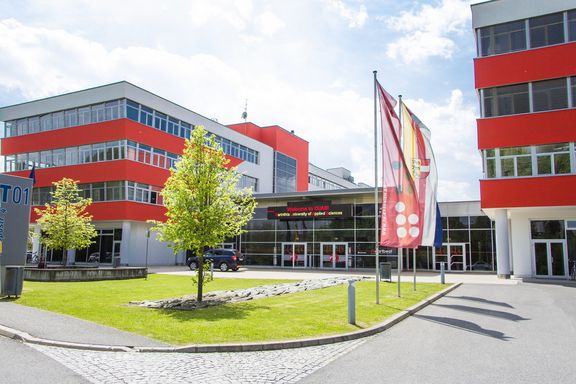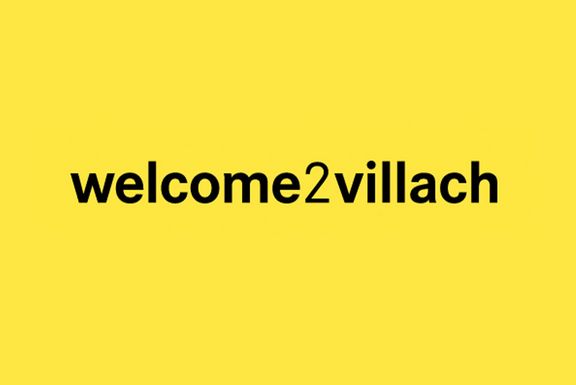guiding principle
Since its foundation in 1995, CUAS has made history. Back then we started with 2 programs and about 70 students; currently we offer about 40 study programs that educate almost 2000 full- and part-time students. About the same number of CUAS graduates is impressive proof of the necessity and importance of this academic institution. Through ever growing acceptance of the programs as well as the high demand for our graduates in industry, the programs will be further developed in the coming years.
CUAS has developed into a unique educational institution in Carinthia. Through constant further development of the degree programs at CUAS and intensive cooperation with the worlds of business and science, those studying at the university can be certain of a progressive education with its finger on the pulse of time. CUAS lives the vision of direct practical experience. Full- and part-time lecturers, as well as guest speakers from industry and business ensure an interdisciplinary, internationally oriented education. Degree programs are offered in the fields of civil engineering and architecture, engineering, as well as management, healthcare and social issues.
The quality of our education is emphasized through the development of innovative teaching and learning methods, such as, blended learning, which offers students and professors greater flexibility in the creation of a suitable learning environment.Furthermore, the CUAS library offers educational support through state of the art facilities. On all sites CUAS libraries administrate 33,000 media.
The Carinthia University of Applied Sciences is a dynamic and dialogue-oriented university of applied sciences with regional roots and international orientation. It is active in the focal areas of health and social affairs, technology and economics. Its core tasks lie in the areas of study and teaching, applied research, knowledge transfer and further education.
We live a collegial and respectful coexistence. Our university culture is family-friendly and characterized by trust and appreciation.
We are prepared to ensure and develop the quality of our educational offerings through competence, commitment and the willingness to support necessary change.
We cultivate an open, cross-departmental exchange and promote interdisciplinary cooperation.
We strive for a cooperative partnership between students and university staff.
Students and university staff actively shape their university and thus shape the university culture.
We attach great importance to clear structures and effective teaching methods that offer room for the development of individuality and diversity.
Our courses of study, further education and services as well as our research topics are oriented towards the requirements of the economy and society.
We methodically develop our knowledge in order to contribute to mastering current and future challenges of society.
"We want to position ourselves as a university in teaching and applied research in our core areas of technology, economy, health and social affairs in the top group of Austrian universities!“
In February 2015 Carinthia University of Applied Sciences together with companies from the region of Carinthia has signed the Diversity Charta.
The Diversity Charter is a public, voluntary commitment by Austrian companies, institutions and organisations that enables them to declare their appreciation of the diversity of people, regardless of their gender, age, background and skin colour, sexual orientation, religion and world view, or of their physical and mental capacities.
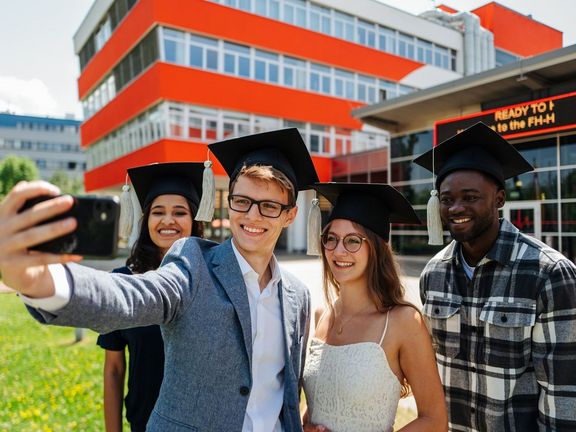
Organisation
The Carinthia University of Applied Sciences is run as a non-profit limited liability company. The purpose of the GmbH is the establishment, maintenance and implementation of UAS degree programs and postgraduate programs in the fields of technology, business, health & social affairs, as well as the implementation of courses for education and training.
The organizational chart provides an overview of the organizational structure of the Carinthia University of Applied Sciences.

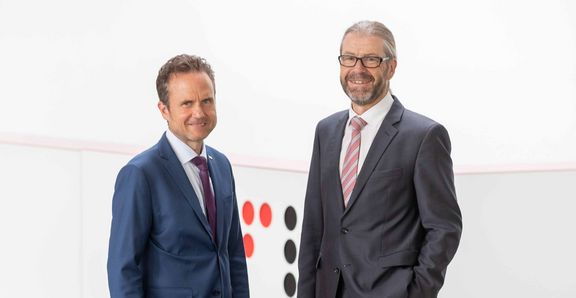
The gemeinnützige Gesellschaft mbH has an academic and a commercial management whose competences and areas of responsibility are defined in the rules of procedure. They are jointly responsible for the strategy, development and quality of the university and represent it externally. DI Siegfried Spanz, Managing Director, is responsible for the commercial and organizational side of the university, while Dr. Peter Granig, authorized signatory, is responsible for the scientific side.
Contact
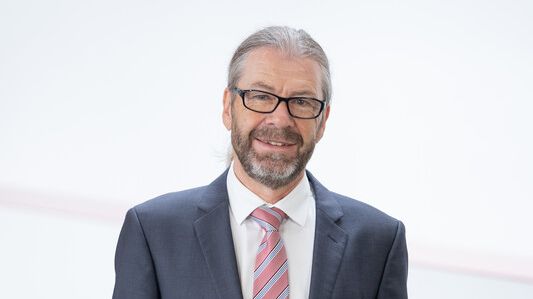
DI Siegfried Spanz
Executive Director
+43 5 90500 7000
siegfried.spanz[at]fh-kaernten[dot]at
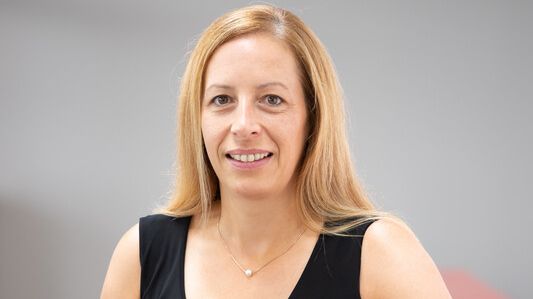
Mag.a Barbara Taferner
Assistant to the Executive Director
+43 5 90500 2005
b.taferner[at]fh-kaernten[dot]at
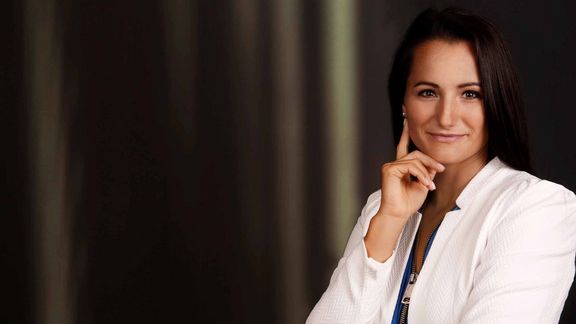
Martina Keuschnig, BA
Assistant to the Executive Director
+43 5 90500 7003
m.keuschnig[at]fh-kaernten[dot]at
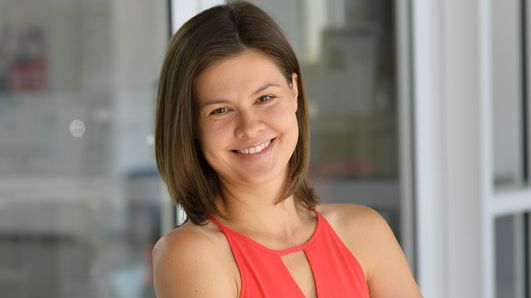
Mag.a Claudia Haid
Assistenz der Geschäftsführung
+43 5 90500 7003
c.haid[at]fh-kaernten[dot]at
Contact
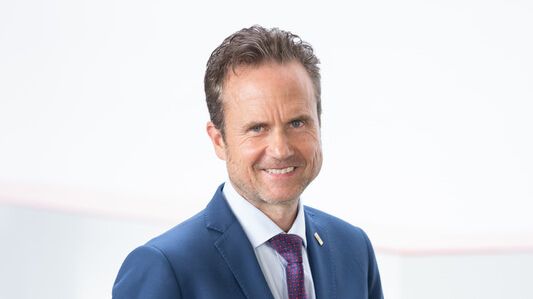
FH-Prof. Mag. Dr. Peter Granig
Head of Academic Council, Professor of Innovation Management and Business Administration
+43 5 90500 7100
p.granig[at]fh-kaernten[dot]at
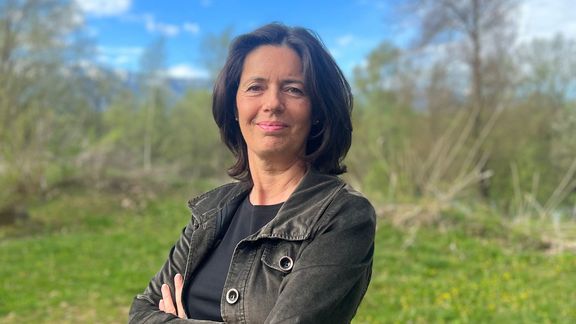
Mag.a Anneliese Heitzinger
Assistent of Collegiate Council
+43 5 90500 7101
A.Heitzinger[at]fh-kaernten[dot]at
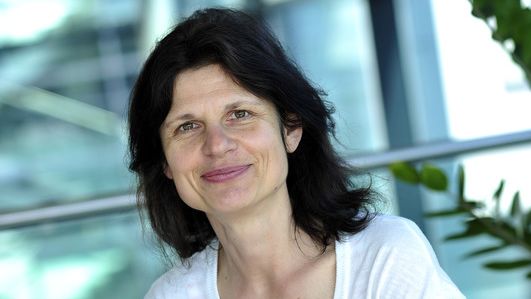
DI Elisabeth Lichtenberg
Mitarbeiterin Rektorat
+43 5 90500 7401
e.lichtenberg[at]fh-kaernten[dot]at
A supervisory board of the non-profit company supports the operational development of the university and is composed of experts and thematically aligned with the study programs of the Carinthian University of Applied Sciences. The supervisory board monitors the strategic educational, scientific and research orientation of the limited liability company.
The members of the supervisory board consist of four experts and the members of the foundation's board of directors:
- Dr. Karl Cernic, Managing Director of the Carinthian Health Fund
- Dr. Arnold Gabriel, Managing Director of Kärntner Landeskrankenanstalten-Betriebsgesellschaft - KABEG
- Dr.in Sabine Herlitschka, Chairwoman of the Supervisory Board of gGmbH
- DI Christopher Müller, CTO and co-founder of Bitmovin
- Univ.-Prof. Dr. Heribert Nacken, Professor and Rectorate Representative of RWTH Aachen University for Blended Learning and Exploratory Teaching Space, Vice Chairman of the Supervisory Board of gGmbH
- Mag.a Ulrike Resei, Head of Risk Management and Director of the Board of Kärntner Sparkasse AG
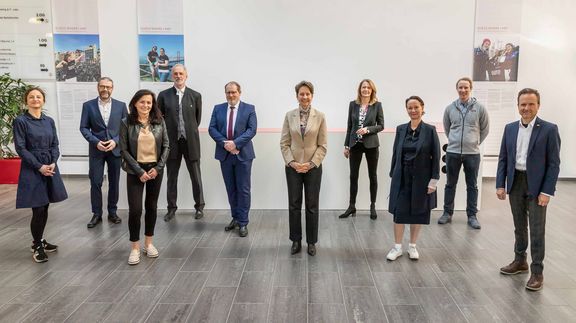
The university board is the highest decision-making body of the FH Carinthia. It shapes the framework conditions for a future-oriented and sustainable development of the university. For this purpose, it sets strategic goals, makes fundamental, operative decisions and takes over the monitoring of university processes. It acts as a role model for the entire organization.
The management, the rectorate, the heads of the study areas as well as the heads of the listed service areas form the university management of the FH Carinthia:
Mag.a Petra Bergauer, Head of Marketing & PR
FH-Prof. Mag. Dr. Thomas Fenzl, Head of the Department of Economics & Management
FH-Prof. Mag. Dr. Peter Granig, Rector and authorized representative
DI Herbert Kotschnig, MBA, Head of Controlling
Mag.a Alexandra Liegl, Head of the Center for Continuing Education
FH-Prof. DI Dr. techn. Christian Menard, Head of the Engineering & IT Department
FH-Prof.in Angelika Mitterbacher, MSc. MEd, Vice Rector
DI Dr.in Claudia Pacher, Head of FH Kärnten Research
FH-Prof. Mag. Dr. Holger Penz, Head of Department Health & Social Affairs
FH-Prof. DI Dr. Martin Schneider, Head of the Department of Civil Engineering & Architecture
DI Siegfried Spanz, Managing Director
The FH-Collegium is responsible for coordinating the content of all teaching activities. The aim of the FH-Collegium is to ensure a high quality of teaching, research and continuing education at the CUAS.
Es wählt
- die Leitung sowie die Stellvertretung auf Grund eines Dreiervorschlages des Erhalters. Mit Zustimmung des Kollegiums kann dieser Vorschlag auf zwei Personen reduziert werden.
Es berät über und beschließt
- den Antrag an den Erhalter auf Abberufung der Leitung oder der Stellvertretung oder Stellungnahme zu einer diesbezüglichen Absicht des Erhalters für den Fall, dass diese Organe ihre Aufgaben gröblich verletzt oder vernachlässigt haben oder nicht mehr in der Lage sind, ihre Aufgaben zu erfüllen;
- Änderungen betreffend akkreditierter Studiengänge im Einvernehmen mit dem Erhalter;
- Die Einrichtung und Auflassung von Studiengängen und Hochschullehrgängen im Einvernehmen mit dem Erhalter;
- die Antragstellung zum Budget (Investitions-, Sach- und Personalaufwand) an den Erhalter;
- strategische Weiterentwicklung von Lehre, angewandter Forschung und Internationalisierung zur Sicherstellung kompetenz- und zukunftsorientierter Studien auf Hochschulniveau im Einvernehmen mit dem Erhalter;
- Sicherung der Qualität der Lehre und Forschung sowie Evaluierung des gesamten Lehrbetriebes samt Prüfungsordnung und Studienpläne;
- die Verleihung von im Universitätswesen üblichen akademischen Ehrungen im Einvernehmen mit dem Erhalter;
- die Erlassung einer Geschäftsordnung und einer Satzung im Einvernehmen mit dem Erhalter;
- über Beschwerden gegenüber Entscheidungen der Studiengangsleitung.
Es koordiniert
- inhaltlich den gesamten Lehrbetrieb;
Der Leitung des FH-Kollegiums gem. § 10 Abs 4 FHG idgF obliegt
- sofern es hauptberuflich tätige Personen sind, die Beauftragung und die Erteilung von Anweisungen an Mitglieder des Lehr- und Forschungspersonals, um eine ordnungsgemäße Durchführung des Lehrbetriebs sowie eine qualitätsvolle praxisorientierte Ausbildung auf Hochschulniveau sicherzustellen, sowie im Rahmen der Qualitätssicherung die Beauftragung und die Erteilung von fachlichen Anweisungen an Studiengangsleitungen und an Leitungen von akademischen Organisationseinheiten;
- die Erteilung von Lehraufträgen auf Grund von Vorschlägen oder nach Anhörung des Kollegiums;
- die Vertretung des Kollegiums nach Außen;
- die Vollziehung der Beschlüsse des Kollegiums;
- die Verleihung akademischer Grade und deren Widerruf sowie Nostrifizierungen ausländischer akademischer Grade;
- Vorschläge für die Leitungen von akademischen Organisationseinheiten und von Lehr- und Forschungspersonal an den Erhalter;
- Die Beauftragung und Mitwirkung an der Durchführung externer Qualitätssicherungsverfahren im Einvernehmen mit dem Erhalter.
Das FH-Kollegium wird vom Rektor geleitet. Neben dem Rektor und der Vizerektorin gehören dem FH-Kollegium sechs Leiter*innen der Studiengänge, sechs Vertreter*innen des Lehr- und Forschungspersonals sowie vier Vertreter*innen der Studierenden der Fachhochschule Kärnten an. Diese Vertretungen im Kollegium werden von den jeweiligen Personengruppen (Kurien) alle vier Jahre gewählt.
Derzeit umfasst das FH-Kollegium folgende Mitglieder:
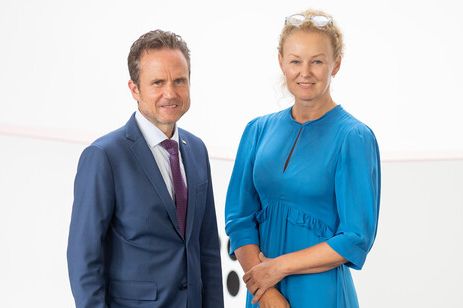
FH-Prof. Mag.Dr. Peter Granig
Rektor
Gesundheit & Soziales
FH-Prof.in Angelika Mitterbacher, MSc. MEd
Vizerektorin
Gesundheit & Soziales

Dipl.-Ing. Daniel Bednarzek, MSc.
Studiengangsleiter
Bauingenieurwesen & Architektur

FH-Prof.in MMag.a Dr.in Kathrin Stainer-Hämmerle
Studiengangsleitung & Professur für Public Management
Wirtschaft & Management
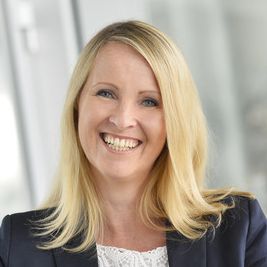
Evelin Haimburger, MSc.
Studiengangsleiterin
Gesundheit & Soziales
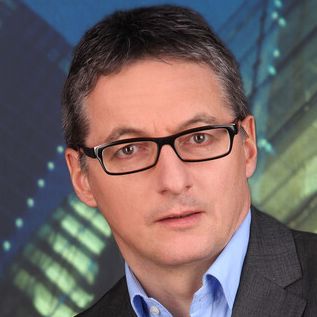
FH-Prof. DI Dr. Erich Hartlieb
Studiengangsleiter
Engineering & IT
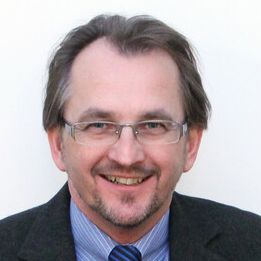
FH-Prof. Dipl.-Ing. Dr. Robert Hauser
Studiengangsleiter
Engineering & IT
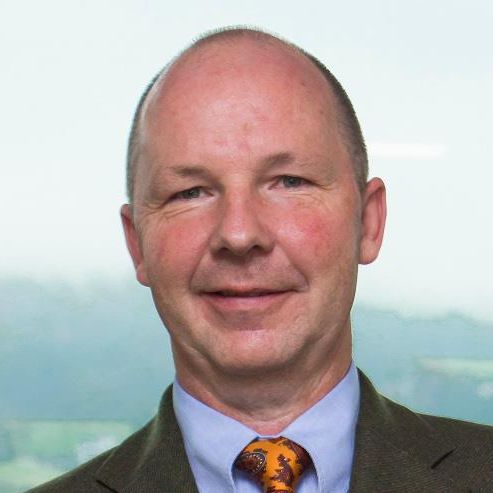
FH-Prof. Mag. Dr. Klaus Wettl
Studiengangsleiter
Gesundheit & Soziales

FH-Prof.in Mag.a Hermine Bauer
Lehr-/Forschungspersonal
Wirtschaft & Management
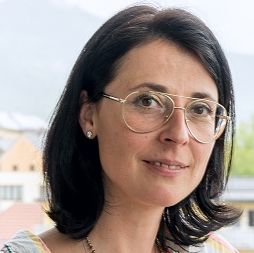
FH-Prof.in Priv.-Doz.in Mag.a Dr.in Eva Mir
Lehr-/Forschungspersonal
Gesundheit & Soziales
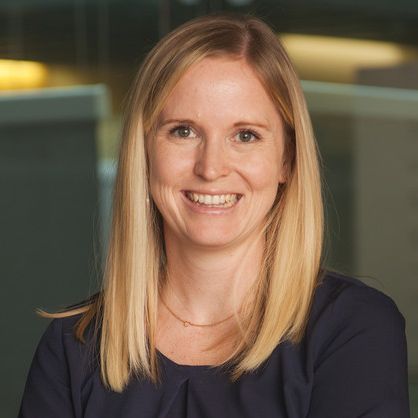
Kathrin Radl, BA M.Ed.
Lehr-/Forschungspersonal
Gesundheit & Soziales
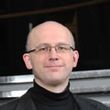
FH-Prof. Dr.-Ing. Karl-Heinrich Anders
Lehr-/Forschungspersonal
Engineering & IT
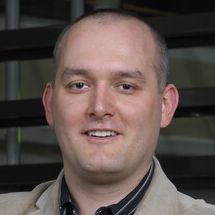
Dipl.-Ing. Jörg Störzel
Lehr-/Forschungspersonal
Bauingenieurwesen & Architektur

FH-Prof. Dr. Christoph Ungermanns
Lehr-/Forschungspersonal
Engineering & IT

Lex Kilian
Student Representative
Civil Engineering & Architecture

Katharina Berger, BSc
Studierendenvertreterin
Bauingenieurwesen & Architektur

Lukas Schrall
Student Representative
Engineering & IT

Christian Sucher
Student Representative
Health Sciences & Social Work
[Translate to English:] Satzung der FH Kärnten
The statutes of the Carinthia University of Applied Sciences consist of the following parts:
- RE-R08 Statute_General Provisions
- RE-R03 Statute Study and Examination Regulations
- RE-R18 Statute Equality and the Promotion of Women at the Carinthia University of Applied Sciences
- RE-R06 Statute FH Professorship and Academic Honours
- RE-R22 Statute: Statute Election Regulations
- RE-R24 Statute: Study and examination regulations for courses according to § 9 FHG in cooperation with the AMC Wirtschaftsakademie Wien
- RE-R25 Statute: Study and examination regulations for university courses according to GuK-SV
- RE-R26_Satzungsteil_Studienberechtigungsprüfung
Einrichtung von Kommissionen
Rechtliche Grundlagen(Auszug aus der Geschäftsordnung des FH-Kollegiums):
Wenn es das FH-Kollegium beschließt, können Kommissionen an Stelle des FH-Kollegiums in Angelegenheiten, die nicht in § 10 FHG idgF geregelt sind, Entscheidungen treffen. Entscheidungen durch eine Kommission an Stelle des Kollegiums in Angelegenheiten des § 10 FHG idgF sind nur zulässig, wenn die Kommission proportional zur Zusammensetzung des Kollegiums (2:6:6:4) eingerichtet ist.
Zur Unterstützung seiner Arbeit hat das FH-Kollegium derzeit folgende Kommissionen eingerichtet:
In der Kommission für Studienprogramm & Lehrangelegenheiten werden Beschlussvorschläge für das FH-Kollegium erarbeitet, die inhaltlich insbesondere die Prüfungs- und Studienordnung, Änderungsanträge bestehender Studiengänge und Hochschullehrgänge, Anträge neuer Studiengänge und Hochschullehrgänge, Didaktische Weiterbildung, Lehr- und Lernprojektförderungen etc. umfassen.
Bei der Beschwerdekommission des FH-Kollegiums können Studierende und Studienbewerber*innen Beschwerden gegenüber der Entscheidung einer Studiengangsleitung einbringen, sofern diese Entscheidung den*die Beschwerdeführer*in persönlich betrifft und benachteiligt. Außerdem kann Beschwerde erhoben werden, wenn eine Entscheidung von der Studiengangsleitung nicht getroffen wurde, obwohl dies erforderlich gewesen wäre.
Die Beschwerde mit konkreter Beschreibung des Sachverhalts ist in schriftlicher Form im Rektorat einzubringen.
Rechtliche Grundlagen:
Das FH-Kollegium ist gemäß § 10 Abs 3 Z 11 FHG idgF für die Entscheidung über Beschwerden von Studierenden und Studienbewerber*innen gegenüber Entscheidungen der Studiengangsleitung zuständig und hat für diese Zwecke die Kommission (lt. FHG: Ausschuss) „Beschwerden“ eingerichtet.
Die interne Richtlinie RE-P02 Beschwerdeeinbringung steht in der QM-Library im Intranet zur Verfügung und ist zur Ansicht für alle Mitarbeiter*innen und Studierende freigegeben.
The FH Kärnten - gemeinnützige Privatstiftung is the 100% owner of the FH Kärnten - gemeinnützige Gesellschaft mbH and, as a holding company, defines the strategic framework for the development of the university.
The Foundation Board consists of three honorary members and oversees the operations of the non-profit company.
- Dr. Karl Cernic, Managing Director of the Carinthian Health Fund, Deputy Chairman of the Foundation Board
- Dr.in Sabine Herlitschka, Chairwoman of the Board of Infineon Technologies Austria, Chairwoman of the Board of the Foundation
- Mag.a Ulrike Resei, Head of Risk Management and Managing Director of Kärntner Sparkasse AG
Der Aufsichtsrat der gemeinnützigen Privatstiftung – bestehend aus zehn Mitgliedern – hat die Aufgabe, die strategischen Leitlinien für Lehre und wissenschaftliche Forschung festzulegen und die Arbeit des Stiftungsvorstandes zu überwachen. Ziel des Aufsichtsrates ist die Beratung und Reflexion strategischer Überlegungen der Hochschule, die Einbringung von Expertise und die Vernetzung von Hochschule und Wirtschaft.
Die Aufsichtsratsmitglieder:
- Mag. Armin Ebner, Bundesinnung Bau und Fachverband der Bauindustrie
- Mag.a Beate Gfrerer, Kärntner Volkshochschulen, Stv. Vorsitzende des Aufsichtsrates der Privatstiftung
- StR Mag. Franz Petritz, Landeshauptstadt Klagenfurt
- DI Reinhard Petschacher, Fachverband der Elektro- und Elektronikindustrie
- StR Christian Pober, BEd., Stadt Villach
- Mag. Udo Puschnig, Amt der Kärntner Landesregierung
- GRin Ina Rauter, Stadtgemeinde Spittal
- DI Dr.in Petra, Rodiga-Laßnig, KELAG Connect, Vorsitzende des Aufsichtsrates der Privatstiftung
- Bgm. Martin Treffner, Stadtgemeinde Feldkirchen
- DI Walter Wiedenbauer, Geschäftsführer Sto Ges.m.b.H.
Die Privatstiftung der FH Kärnten besteht aus 14 Stiftern:
- Alpen-Adria-Universität Klagenfurt
- Bundesinnung Bau
- Fachverband der Bauindustrie
- Fachverband der Elektro- und Elektronikindustrie
- Land Kärnten
- Landeshauptstadt Klagenfurt
- Silicon Austria Labs GmbH
- Stadtgemeinde Feldkirchen
- Stadtgemeinde Spittal an der Drau
- Stadtgemeinde Villach
- Verein zur Errichtung der Fachhochschule Klagenfurt
- Verein zur Förderung der Fachhochschule Technikum Kärnten
- Vereinigung der Österreichischen Industrie Landesgruppe Kärnten
- Wirtschaftskammer Kärnten
The Board of Trustees is the scientific advisory board of the CUAS - Carinthian University of Applied Sciences. Its main task is to promote the University of Applied Sciences in Carinthia and, in particular, to support and advise it in the development and evaluation of study programs and in the establishment of research activities.
The members of the board of trustees:
- Mag. Johannes Eder, MBA, Geschäftsführender Gesellschafter Humanomed Consult GmbH
- DI Josef Fugger, Infineon Technologies AG
- Ao. Univ.-Prof.in Mag.a Dr.in Barbara Hinterstoisser, University of Natural Resources and Applied Life Sciences, Deputy Chairwoman of the Board of Trustees
- Dr.in Claudia Mischensky, Federation of Austrian Industries, Chairwoman of the Board of Trustees
- Mag. Rainer Schmidtmayer, Treibacher Industrie AG
- Sandra Venus, KWF
- Univ.-Doz.in Dr.in Claudia-Elisabeth Wulz, University of Vienna (CERN)
Annual Reports of CUAS & Statute

Nachhaltigkeit
The topic of sustainability has moved even more into the focus of society in the course of the current challenges. For us as a university, responsible thinking and action combined with goals for sustainable development form an important basis. In addition to its core tasks of teaching and research, a university's third central task is to have a sustainable impact on society. In the past, this "third mission" was regarded as an additional task of higher education institutions, but now it is increasingly developing into a "first mission", to which the study and research activities are also aligned.
From this perspective and development, it follows that the topics of sustainability, the pursuit of the Sustainable Development Goals (SDGs) as well as environmental management and the associated activities and measures of the university are of central importance to Carinthia University of Applied Sciences and must be continuously strengthened.
In order to ensure that the idea of sustainability reaches all areas of the university, we have created contact points in the form of the Sustainability Officer Eva Stefaner and the Environmental Officer Karl-Heinz Huber. The colleagues are happy to receive ideas and suggestions on these topics.

Mag.a Manuela Seebacher
Nachhaltigkeitsbeauftragte
+43 5 90500 7002
nachhaltigkeit[at]fh-kaernten[dot]at
Karl-Heinz Huber
Umweltbeauftragter
+43 5 90500 7900
umweltmanagement[at]fh-kaernten[dot]at
Familienfreundliche Hochschule
Creating a family-friendly environment for staff and students is at the heart of the University of Applied Sciences Carinthia's efforts in the hochschuleundfamilie project. Since 2014, organisational measures have been implemented at our university to support the compatibility of family and studies/profession.
The topic of family friendliness at Carinthia University of Applied Sciences was made visible during the audit "hochschuleundfamilie" and the first existing measures were presented. Building on this, further measures were defined and implemented in various subject areas in the following audit periods.
After the Carinthian University of Applied Sciences was awarded the basic "hochschuleundfamilie" certificate in 2014, the certificate was renewed in 2017 and 2020. Within each audit period, measures were developed and implemented in a number of selected topic areas.
In its efforts, Carinthia University of Applied Sciences refers to the following concept of family: "Family includes people who have a binding relationship with each other and who care for and bear responsibility for each other".
Continuous expansion of the digital teaching offer
- Use of the digital learning platform Moodle
- Increased online teaching (location-independence)
- Increased blended learning with synchronous and asynchronous learning phases (time independence)
- Use of MS Teams as a platform for online teaching and online meetings
- Training / support for the development of didactic concepts by the Didactics Centre
- Equipment for hybrid teaching in numerous lecture halls/seminar rooms
Adaptations of examination regulations
- Module examinations = fewer certificates
- Part-time studies = stretching of one academic year to 2 years
- Make compulsory internships possible on a part-time basis
- Illness of children or relatives in need of care = excuse for examinations
Implement "Student Support Service
- Systematic development of student health management
- Psychosocial crisis counselling for students
Establish guidelines and company agreements that take into account the changing working conditions and needs, and also improve the compatibility of work & family.
- Company agreement on "Flexible Working Hours" with an annual accounting.
- Directive "Distance Working" allows working at home or at other locations (from 2015 - 2021)
- Company agreement on "Sabbatical", which includes various savings models for individual sabbaticals. The "Sabbatical" company agreement, which allows for various savings models for individual time off
- Company agreement "Working in a Home Office" (replaces "Distance Working" guideline) (since 2021)
Rahmenbedingungen für ein gesundes, engagiertes und ausgeglichenes Arbeiten an der FH Kärnten zu schaffen, um die Ziele als Fachhochschule erfolgreich umzusetzen.
- Implementierung Laufbahnmodell und Gehaltsmodell
- Inanspruchnahme von Elternteilzeit, Altersteilzeit, Papamonat und Väterkarenz
- Betriebliche Gesundheitsvorsorge: Im Projekt FH4HEALTH werden Maßnahmen für folgende 3 Säulen entwickelt und angeboten:
1. Gesunde Mitarbeiter*innen und Studierende
2. Gesunde Arbeit
3. Gesunde Unternehmenskultur

Ulla Birnbacher
Projektleitung hochschuleundfamilie
+43 5 90500 2111
u.birnbacher[at]fh-kaernten[dot]at
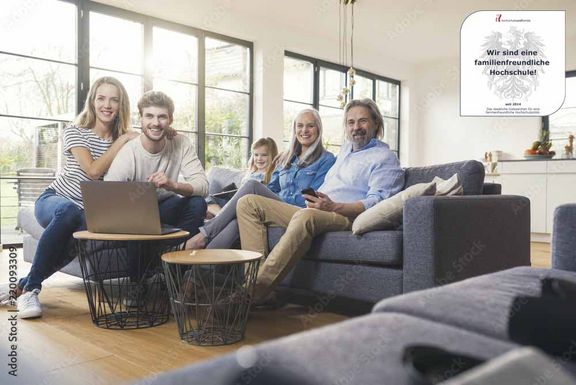
Work Council
Work Council
It is not only for what we do that we are held responsible, but also for what we do not do. (Molière)
The work council represents the interface between the staff and faculty (employees) and the management (employer). Its task is twofold: 1) to be active as mediating entity as well as 2) to function as a central contact point. The current work council team harmonizes well with one another, complements each other well and is committed to positively act upon the concerns of all fellow colleagues.
An elected work council can – supported by the solidarity of the staff and faculty – forcefully and consequently address and represent the concerns of its colleagues. In addition to its core function of representing the work force vis-à-vis the management of the Carinthia University of Applied Sciences, the work council looks for opportunities as well as funding for business, social, health and cultural interests of the staff and faculty.
Contact
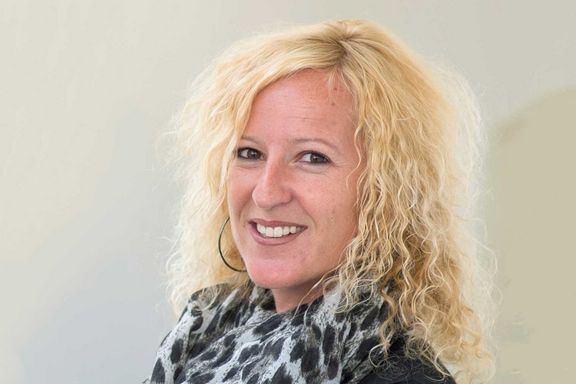
Mag.a rer.nat. Carmen Zernig-Malatschnig
Chairwoman of the Works Councile
+43 5 90500 4313
c.zernig-malatschnig[at]fh-kaernten[dot]at
Hauptplatz 12
9560 Feldkirchen in Kärnten
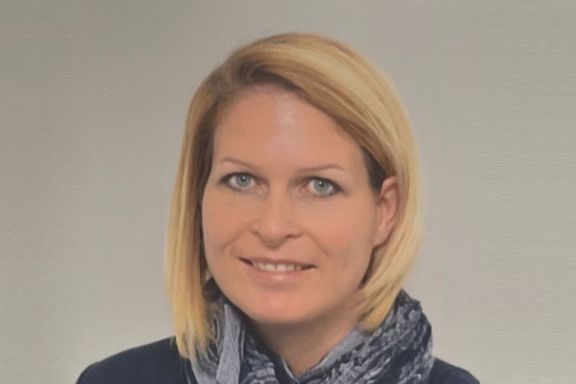
THE CARINTHIAN UNIVERSITY CONFERENCE & THE PROVINCE OF CARINTHIA
Shaping the future together
On 10 October 2012, the Alpen-Adria-Universität Klagenfurt, the Carinthian University of Applied Sciences and the Carinthian University of Education - Viktor Frankl University joined forces to form the Carinthian University Conference in order to bundle the joint forces even better, to use synergies and to "rethink Carinthia".
Carinthia's universities are key centres of education policy, which make a decisive contribution to mastering the coming social and economic challenges. They thus make a significant contribution to the development and prosperity of the state. The common Carinthian higher education area leads to a sharpened profile and the expansion of the location advantage, to a consolidation of the common research profile and to a higher ability to cooperate with each other and with the economy.
Competition and transparency in the international education market are constantly increasing. A joint positioning of Carinthia's universities is therefore of central importance for the future of the entire education location and for the competitiveness of the province of Carinthia.
Students' expectations of their universities are changing: processes of adaptation and specialisation must be carried out ever more quickly in order to be able to operate successfully and competitively both nationally and internationally. Together, the challenges in internationalisation programmes, infrastructure issues and university didactics can be met more efficiently and better.
Particularly in a country with few resources such as Carinthia, education is a key success factor and a solid foundation for the future: It determines the development opportunities, quality of life and prosperity of the next generations, and the ability to actively and creatively master the "grand challenges" facing our society.
- Elaboration of strategies for the development of the Carinthian higher education area in close cooperation with the State of Carinthia;
- Sharpening and strengthening a common profile to guide student flows from Austria and abroad;
- Development of common positions on social, economic and higher education strategy issues;
- Coordinated cooperation with politics, business and society to develop a joint strategy "Rethinking Carinthia".
- Interdisciplinary and inter-institutional cooperation in research and development on the "Grand Challenges" defined by the EU;
- Securing federal investment in personnel and infrastructure in the region through concerted cooperation between the state, cities and universities.
Common concepts for a tertiary education strategy
Carinthia's universities fulfil a central social mission, are the qualification engines of the economy and a driving force for innovation. They develop potentials from basic skills to key qualifications and make a decisive contribution to securing the economic location by training and employing qualified workers. Carinthia's universities make the coming generation fit for the future and guarantee the decisive view beyond the horizon in a humane, socially coherent, emotionally strengthened, enlightened, adaptive, innovation and performance-oriented society.
The conditions for Carinthia as a location for education, science and research are challenging but promising. The province of Carinthia plays a decisive role in its sustainable safeguarding and future-oriented further development: it sets the political course in order to work out viable future concepts together with the Carinthian University Conference and to position itself as a competitive research and education location at the federal level as well. Therefore, the cooperation between the Carinthian University Conference and the State of Carinthia will be further intensified in the future: The more coordinated and consciously all the players involved pull together and commit themselves to a productive joint development strategy, the better it will be possible to attract federal funding for further priority areas and infrastructure measures. Together we are stronger - mentally, physically and as a university location.
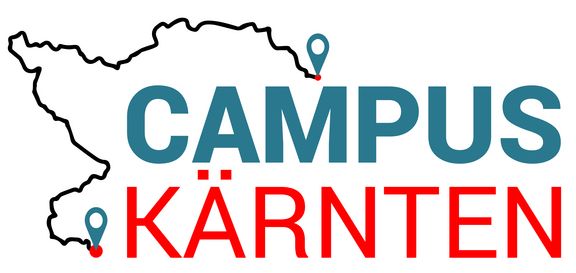
Contact
Campus Feldkirchen
The young district town of Feldkirchen in Carinthia, gateway to the Carinthian Nockberge mountains and Lake Ossiacher See, lies in the centre of Carinthia, in Austria's southernmost province. In addition to unspoilt nature and friendly people, Feldkirchen with its modern shops, stylish boutiques, cosy restaurants and coffee houses is an ideal location for students. Both the mountains and lakes in the area and the proximity to Slovenia and Italy offer a wide range of sports and leisure activities for young and old. Swimming, surfing, sailing or mountain hiking or skiing, ice skating or snowboarding make Feldkirchen an attractive and popular campus!
Take the car, it's so tempting.
Coming from Klagenfurt: You drive on the bypass of Feldkirchen to the 3rd traffic light (Baumax) and turn left there(Ossiacher See Süduferstraße). Follow the road for approx. 1km and turn left towards the centre, into Ossiacher Straße (before the railway crossing). After approx. 200m you will see a free parking lot on the left side, drive straight on for approx. 200m and you will reach the main square. At the lower end on the left you will find the building of the Fachhochschule. There are a few short parking spaces in front of the building.
Coming from Villach: Turn right at the first traffic light into the Ossiacher See Süduferstraße. Follow the road for about 1km and then turn left towards the centre, into Ossiacher Straße (before the railway overpass). After approx. 200m you will see a free parking lot on the left side. Continue straight ahead for approx. 200m to the main square. At the lower end on the left is the building of the University of Applied Sciences. There are a few short parking spaces in front of the building.
Take bus or train, it is safe and comfortable.
Coming from the station: When you leave the station building, turn left towards the centre. Turn left into Obere Tiebelgasse and then right into Bürgergasse, which will take you to the main square. The building on your left is the Fachhochschule, choose the entrance at the main square. Walking time: approx. 10 min.
Go on foot - discover the city!
Coming from the bus station: Walk along 10. Oktober-Strasse towards the city centre until you reach Schillerplatz. There turn right into Kirchgasse until the street forks. Turn left into Ossiacher Straße, which will lead you to the main square after a few steps. The University of Applied Sciences is located at the lower end of the main square, so go down to the left and you will find yourself right in front of the entrance. Walking time: approx. 5 min.Go on foot - discover the city!
Contact
Campus Feldkirchen
Hauptplatz 12
A-9560 Feldkirchen i. K.
+43 5 90 500 4101
gesundheit-und-soziales[at]fh-kaernten[dot]at
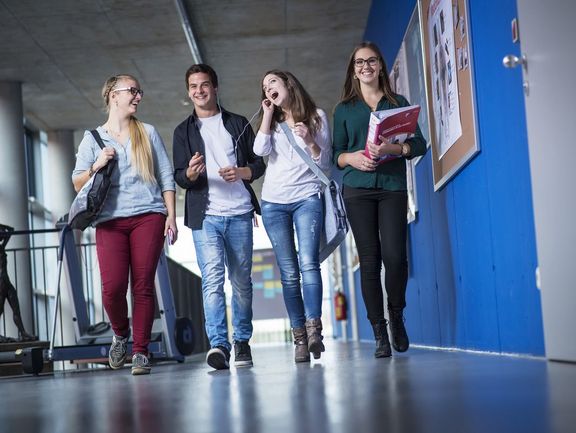
Campus Primoschgasse
Klagenfurt combines joie de vivre, nature and culture. The city of just over 100,000 inhabitants on Lake Wörthersee is a recreational area that fulfils every wish. Slovenia and Italy are not far away, the mountains are within reach. Klagenfurt's cultural scene is also vibrant, with clubs, stages and museums. The Old Square with its many shops, restaurants and cafés is the centre of city life. The idyllic Lendkanal connects the city with the lake and, like Kreuzbergl, is a popular destination for amateur sportsmen and nature lovers.
The campus in Primoschgasse has perfect transport connections - a separate bus line stops directly in front of the FH on the Südring. The view from the roof terrace onto the mountain panorama surrounding Klagenfurt offers the perfect space for relaxing breaks.
Explore Campus Klagenfurt–Primoschgasse on a 360° Tour.
coming from the west (from A10, A11) along the southern motorway A2:
Exit Klagenfurt/Wörthersee (Minimundus), along Südring for about 7 km, turn left at the Südring/Gerberweg intersection (BP gas station), after 150 m turn right to FH Kärnten - Standort Klagenfurt, Primoschgasse 10.
Coming from the east along the southern motorway A2:
Exit Klagenfurt-Ost, turn into town (left), direction Klagenfurt-Zentrum after 1 km on Völkermarkterstraße (right) after about 2.5 km turn left at the intersection into Südring (Kika), at the intersection Südring/Gerberweg (BP gas station) turn into town (right), after 150 m turn right to FH Kärnten - Location Klagenfurt, Primoschgasse 10.
Coming from the south along the Rosentalerstrasse B91:
turn right at the intersection Rosentalerstrasse/Südring (PSK) into Südring, along Südring for about 2.5km. turn left at the intersection Südring/Gerberweg (BP gas station), after 150 m turn right to FH Kärnten - Location Klagenfurt, Primoschgasse 10.
Coming from the north along the St. Veiterstrasse B83:
Turn left, follow St. Veiterring into Völkermarkterring (right) southbound, extension Völkermarkterring into Lastenstraße until you reach the railway underpass (approx. 800m), extension Lastenstraße into Gerberweg, after approx. 750m turn left to FH Kärnten - Location Klagenfurt, Primoschgasse 10.
Klagenfurt main station, footpath to Südpark along Bahnstraße (direction east), footpath along Gerberweg to Primoschgasse to FH Kärnten - location Klagenfurt, Primoschgasse 10 (direction south), duration from main station about 20 min.
Airport Klagenfurt, by taxi to the FH Kärnten - location Klagenfurt, Primoschgasse 10 (duration about 20 min), or by public utility bus to Heiligengeistplatz, change to line 40, 41, 42, 70 or 71, duration from airport about 50 min.
Kontakt
Primoschgasse 8–10
9020 Klagenfurt, Austria
+43 5 90500 3101
engineering-it[at]fh-kaernten[dot]at
+43 5 90500 3301
gesundheit-und-soziales[at]fh-kaernten[dot]at
Erkunden Sie den Campus Klagenfurt–Primoschgasse bei einer 360° Tour.
Campus Klagenfurt–St. Veiter Straße
The capital of Carinthia has numerous events and sights all year round. Whether the World Bodypainting Festival, Ironman Austria, major concerts in the Wörthersee Stadium, open air cinema in the Burghof or the magical Christmas market during Advent - there is always something going on here.
The campus in St. Veiterstraße in Klagenfurt is characterised by short distances. The FH building is located in the immediate vicinity of the city centre and is directly on the grounds of the clinic. In addition, green spaces make it possible to spend time at the university in a pleasant atmosphere.
Explore Campus Klagenfurt–St. Veiter Straße and the Ärztehaus on a 360° Tour.
Coming from Villach or Wolfsberg: Take the A 2 South Motorway, bypass Klagenfurt Nord and take the exit Klagenfurt Nord/ Feldkirchen. Drive south on the Feldkirchner-Straße - towards the city. Follow the road until you reach St. Veiter Ring and turn left. Turn left at the St. Veiter Straße intersection and after approx. 600 m select the entrance to the Landeskrankenhaus site on the left-hand side. Our university building is on the left side.
Coming from St. Veit: Take the S37 directly onto St. Veiter Straße. Follow the road until you reach the entrance to the grounds of the Landeskrankenhaus on the right-hand side. Our university building is on the left-hand side.
Coming from Klagenfurt main station: When you leave the station building, turn left towards the bus station. Lines 40 and 41 of the Klagenfurt public utility company will take you to our building. Distance: about 2,5 km. Walking time: approx. 25 minutes.
Coming from the bus station -Heiligengeistplatz: The bus lines 40 and 41 of the Klagenfurt public utility company will bring you to our building. Distance: about 1,2 km.
Go on foot - discover the city!
Coming from the bus station - Heiligengeistplatz: Walk east on Wiesbadener-Str. towards Neuer Platz and keep right. Turn left into Kramergasse, cross Alter Platz and continue along Wiener Gasse to Heuplatz. Cross the Heuplatz and continue on the St. Veiter Straße. After about 600 m you will find the entrance to the grounds of the Klagenfurt Regional Hospital on the left-hand side. Our building is located on the left side of the street. Walking time: approx. 15 min.
Our building is number 24 on the site plan of the Klagenfurt Regional Hospital.
Contact
St. Veiter Straße 47
9020 Klagenfurt, Austria
+43 5 90500 3501
gesundheit-und-soziales[at]fh-kaernten[dot]at
Explore Campus Klagenfurt–St. Veiter Straße on a 360° Tour.
Spittal an der Drau stands out
The comedy town of Spittal in the Carinthian Oberland with its 16,000 inhabitants knows perfectly well how to combine living tradition with a culturally conscious present.
It is not without reason that the university town of Spittal, situated between education, culture and nature, presents itself as a true experience for body and soul. Cultural awareness, living tradition and a touch of southern serenity - these are the characteristics that make the "little historical town" so worth living in. Lake Millstätter See invites you to swim in summer, in winter the Goldeck is waiting for you to enjoy skiing. Shopping, cultivated gastronomy and cultural activities complement this perfectly. Studying in Spittal an der Drau is therefore a true experience for body, mind and soul!
Explore Campus Spittal on a 360° Tour
Coming from the north along the A10 (Tauernautobahn)
Exit Spittal Nord - Millstätter See, turn right onto the B98 in the direction of Spittal, at the next crossing turn left onto the B99 (Gmünder Straße) in the direction of Spittal, continue straight ahead along the Lieser, across Neuen Platz to Burgplatz (Porcia Castle), turn left at the crossing Burgplatz, across Hauptplatz and through the archway (Villacher Straße), straight ahead across the Lieserbrücke first building on the left directly at the Lieser: Fachhochschule Kärnten "Spittl".
Coming from the west along the B100 (Drautalbundesstraße)
towards the city centre as far as Burgplatz (Porcia Castle on the right), continue straight ahead across the main square and through the archway (Villacher Straße), straight ahead across the Lieserbrücke, first building on the left directly on the Lieser: Carinthia University of Applied Sciences "Spittal".
Coming from the south or east along the A10 (Tauernautobahn)
Exit Spittal-Ost, keep left towards Spittal Zentrum - you are already on the B100 (Villacher Straße), follow the road until you reach the Carinthian University of Applied Sciences "Spittal" (immediately before Lieserbrücke on the right hand side).
With the InterCity to Spittal an der Drau/Millstättersee, footpath along Bahnhofstraße, after the city park turn right into Villacher Straße, straight ahead past Porcia Castle over the main square, through the archway and over the Lieserbrücke:
Carinthian University of Applied Sciences "Spittal" turn left immediately after the bridge.
Duration from main station about 15 min.
Contact
Villacher Straße 1
A-9800 Spittal a.d. Drau
+43 5 90500 1101
bau[at]fh-kaernten[dot]at
Explore Campus Spittal on a 360° Tour.
Villach
The Villach region combines tradition, cosmopolitanism and quality of life with the advantages of an innovative business location. Villach, a small town with about 60,000 inhabitants, is an international high-tech location with groundbreaking cooperation between science and industry and is also increasingly developing into a start-up town.
Situated directly at the intersection of three cultures, Villach, situated on the Drava river, is an important traffic junction in the Alps-Adriatic region. This special geographical location and the beautiful landscape around Villach and in the federal state of Carinthia have made the region a popular holiday destination for generations, further beyond the borders. The drinking water quality of the lakes and the particularly clean air make Villach and its surroundings an environmental paradise.
In addition to its geographical advantages, Austria also leads the world in terms of its social and health care system and is considered a particularly safe, prosperous and liveable country.
Despite the above-average prosperity and the comprehensive state social benefits, Villach compares favourably with many international destinations. The "small town bonus" comes into its own here and makes everyday life affordable.
Explore Campus Villach on a 360° Tour.
Make a virtual walk through the Science & Energy Labs – T10.
Motorway exit Wernberg, then on the B 83 approx. 2 km in the direction of Villach, after the Villach town sign the B83 passes under the A2 motorway, and then immediately right the first exit in the direction of MAGDALENEN SEE. Following the signs for Magdalenen See, the road leads through a small wooded area, always follow the road, after an S-curve past Magdalenen See (left) always straight ahead, cross the southern railway line and go uphill directly into the centre of St. Magdalene. Turn right at the top of the hill, down the road, the grounds of the technology park are already visible to the south, the chimney of the combined heat and power plant, and directly in the sharp right-hand bend turn left onto the grounds of the technology park.
Motorway exit Villach/Ossiacher See, then approx. 2 km in the direction of Villach, on the right is Gasthof Seehof, on the left is Lake Vassach, continue on the B33 left in the direction of east, Wernberg, Klagenfurt, always follow the B33, after approx. 4 km turn right in the direction of Magdalenen See. The road leads through a small forest, always follow the road, after an S-curve past Lake Magdalenen (left) always straight ahead, cross the southern railway line and go uphill directly into the centre of St.Magdalen. Turn right at the top of the hill, down the road, the grounds of the technology park are already visible to the south, the chimney of the combined heat and power plant, and directly in the sharp right-hand bend turn left onto the grounds of the technology park.
The bus company Dr. Richard runs from Villach city to the FH in about every 15 minutes. The timetables are coordinated with the timetables of the ÖBB.
Contact
Europastraße 4
9524 Villach, Austria
+43 5 90500 7700
villach[at]fh-kaernten[dot]at
Explore Campus Villach on a 360° Tour.
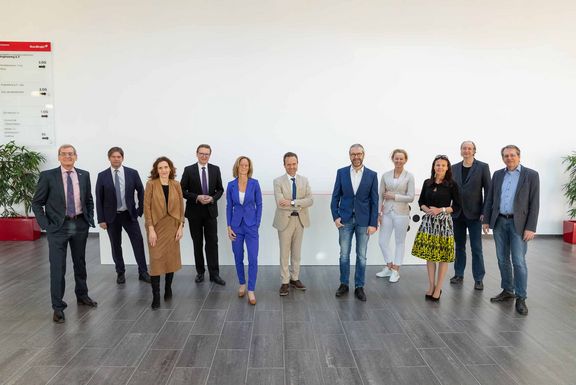
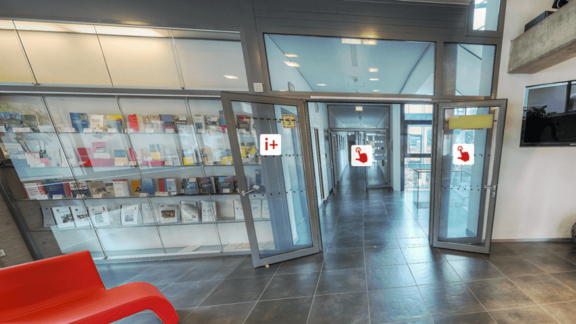
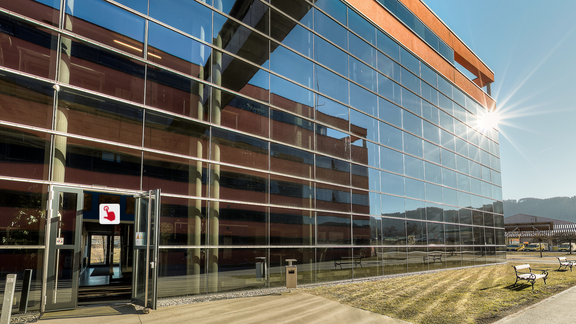
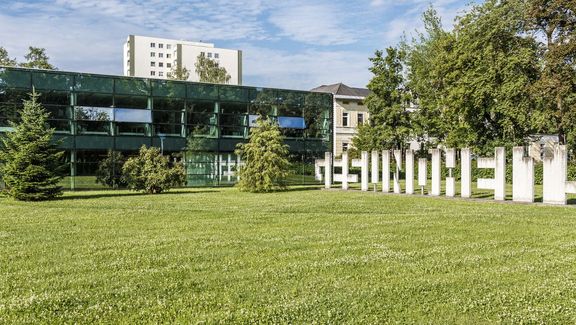
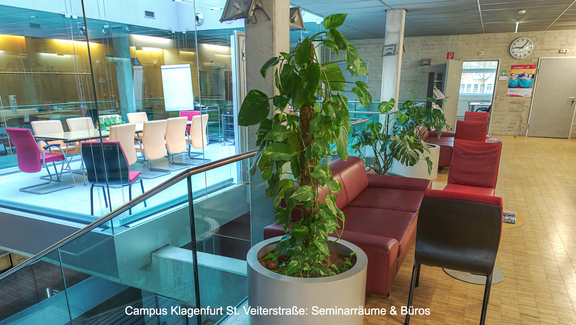
![[Translate to English:] Rundgang Campus Spittal campus-spittal.png](/fileadmin/_processed_/2/5/csm_campus-spittal_f26bae9a78.png)
